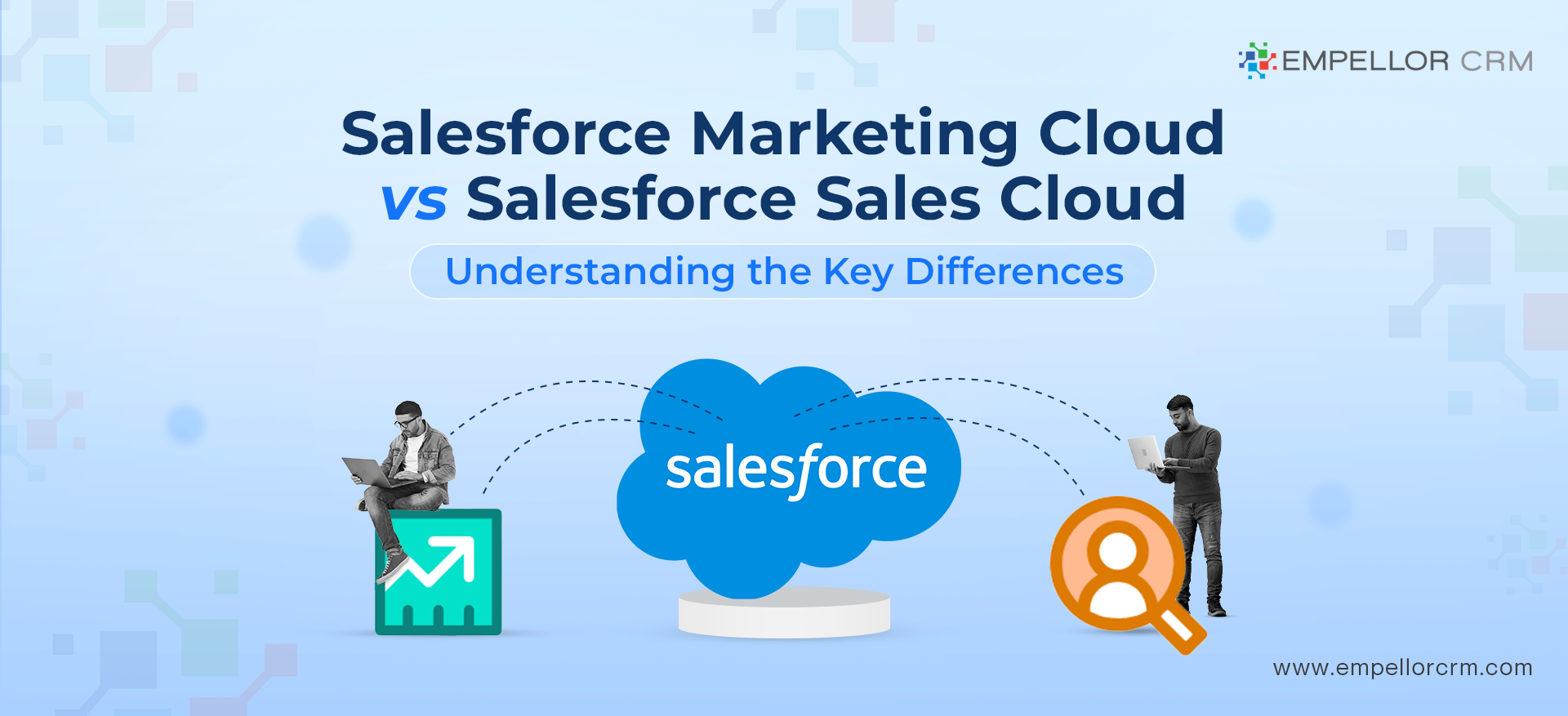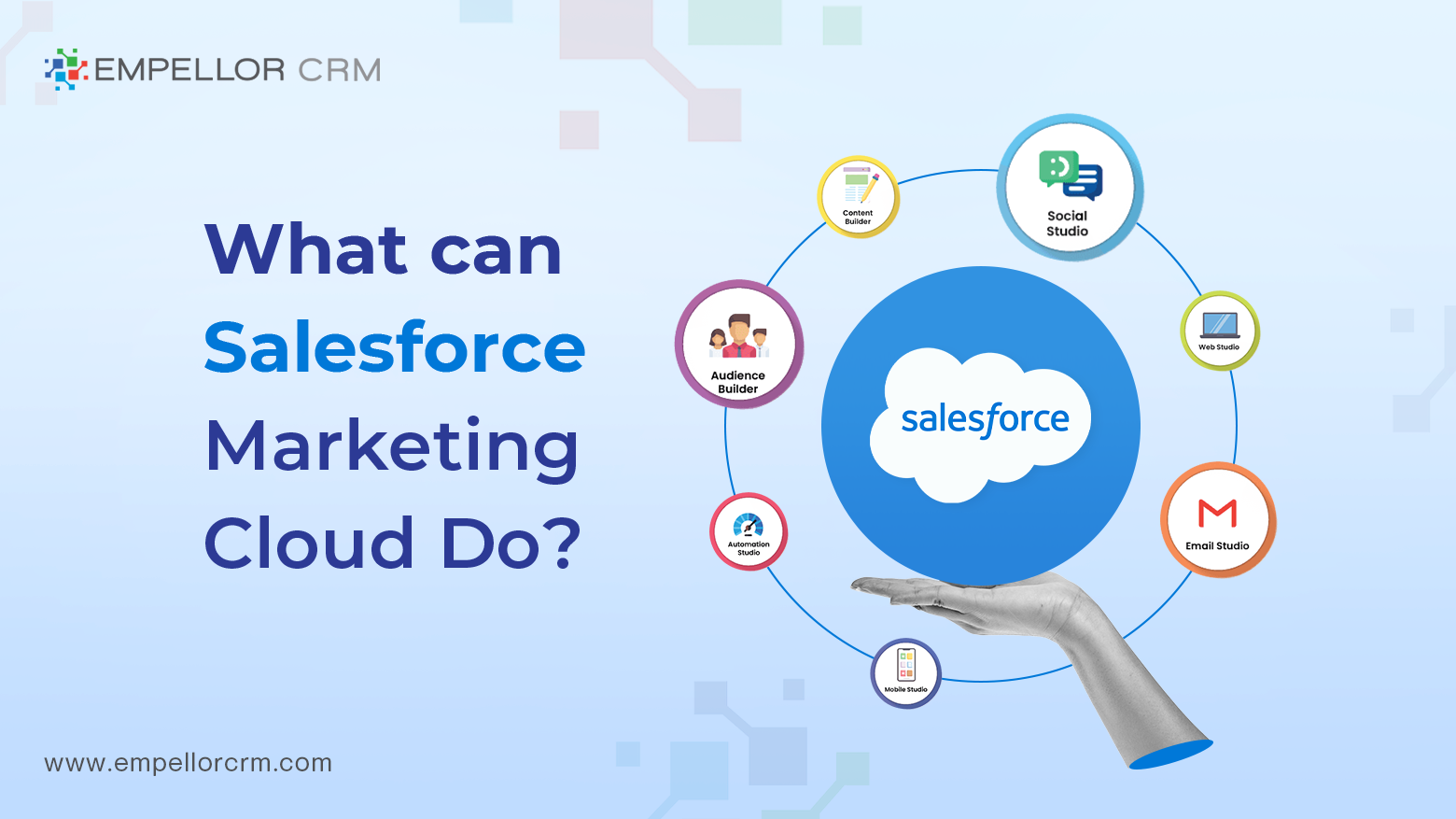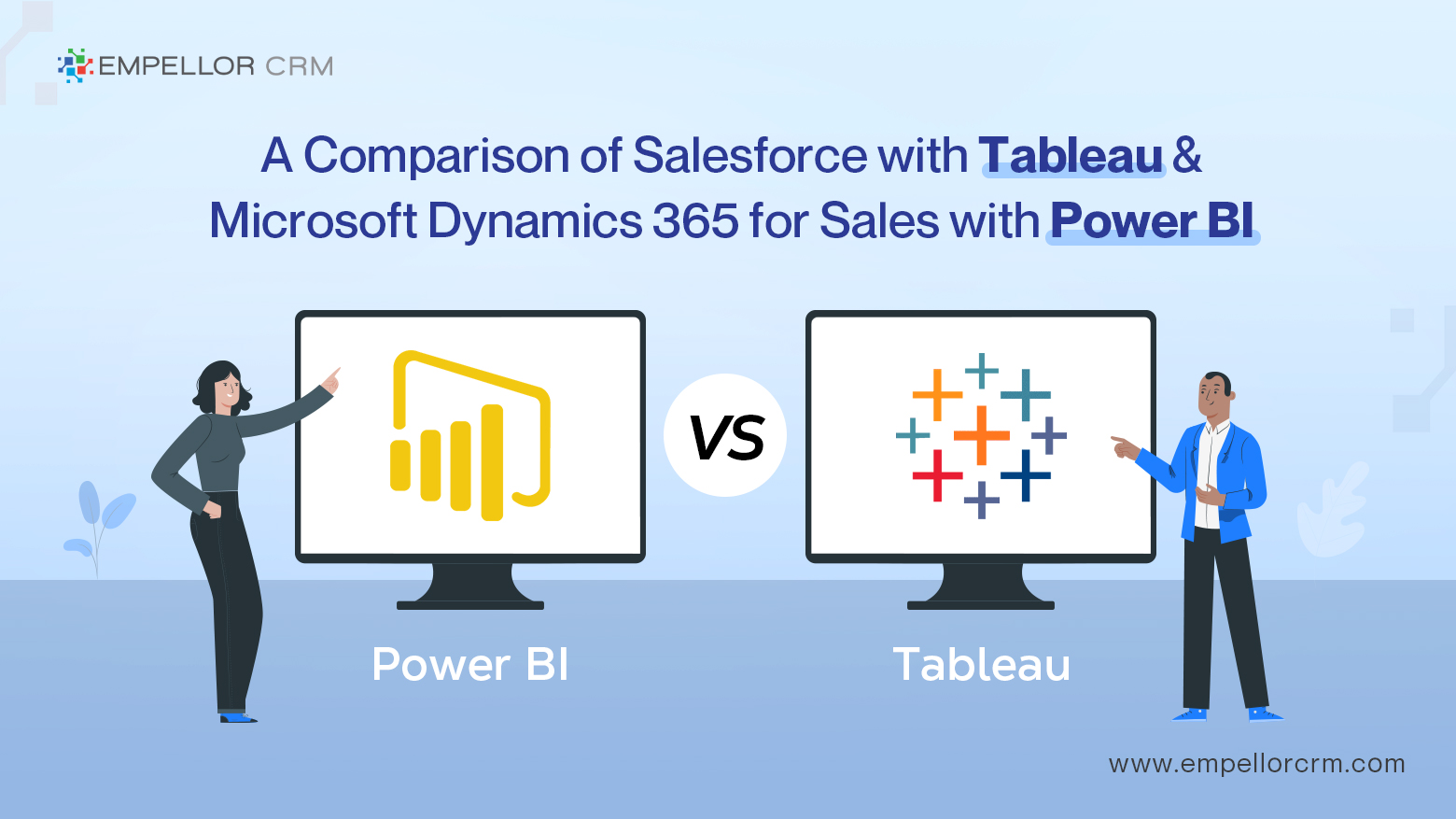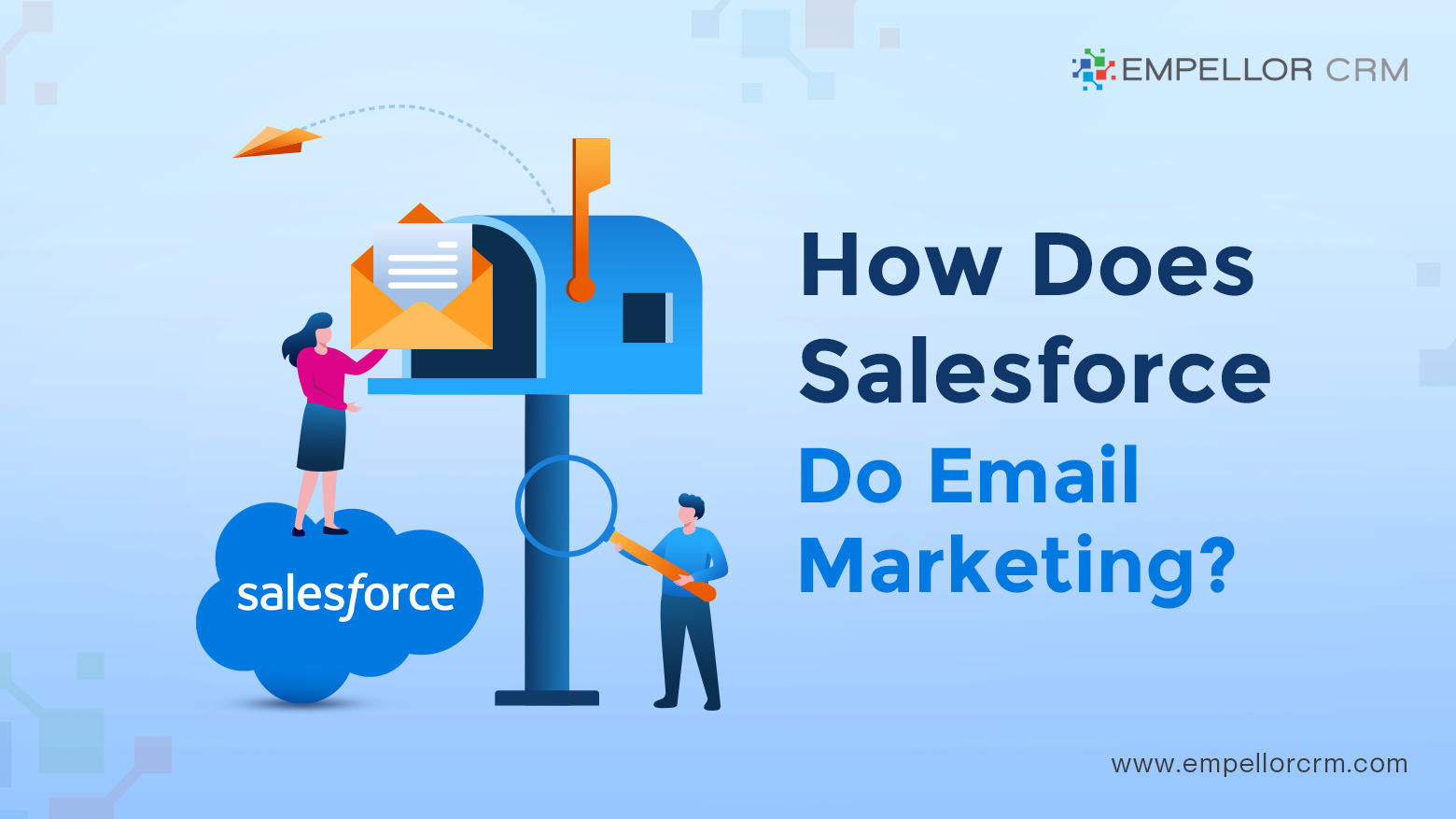Claim your free copy of the book CRM Shouldn’t Suck
Claim your free copy of the book CRM Shouldn’t Suck
Salesforce Marketing Cloud vs. Sales Cloud: Understanding the Key Differences

When it comes to customer relationship management (CRM), Salesforce offers a variety of tools tailored to different business needs. Two of the most prominent tools are Salesforce Marketing Cloud and Salesforce Sales Cloud. But what exactly sets them apart? In this blog post, we will delve into the differences between Salesforce Marketing Cloud and Sales Cloud, helping you understand which one is best suited for your business. By the end, you’ll have a clear picture of how each platform can drive your sales and marketing efforts.
Introduction: Salesforce Marketing Cloud vs. Sales Cloud
Salesforce Marketing Cloud vs. Sales Cloud is a common comparison made by businesses looking to streamline their operations. Both platforms offer robust features, but they serve different purposes. The Marketing Cloud focuses on automating marketing efforts, while the Sales Cloud is designed to enhance sales processes. Let’s explore these differences in more detail.
What is Salesforce Marketing Cloud?
Salesforce Marketing Cloud is a powerful digital marketing platform. It enables businesses to create personalized customer journeys. With tools for email marketing, social media, and data management, it helps companies deliver targeted marketing campaigns.
- Email Studio: Craft personalized email campaigns.
- Social Studio: Manage social media interactions.
- Mobile Studio: Reach customers on mobile devices.
- Advertising Studio: Create targeted ads.
- Journey Builder: Design customer journeys across different channels.
These tools work together to provide a seamless marketing experience. Moreover, Marketing Cloud’s analytics capabilities allow you to measure the effectiveness of your campaigns. Consequently, you can optimize your strategies based on real-time data.
What is Salesforce Sales Cloud?
On the other hand, Salesforce Sales Cloud is a comprehensive sales automation platform. It is designed to improve sales team productivity. With features like contact management, opportunity tracking, and sales forecasting, Sales Cloud helps businesses close more deals.
- Lead Management: Track and manage leads efficiently.
- Opportunity Management: Monitor sales opportunities through various stages.
- Sales Forecasting: Predict future sales and make informed decisions.
- Workflow Automation: Automate repetitive tasks.
- Reports and Dashboards: Gain insights into sales performance.
Sales Cloud also integrates with other Salesforce products, providing a unified view of customer interactions. Therefore, sales teams can access all the information they need in one place.
Key Differences: Salesforce Marketing Cloud vs. Sales Cloud
Now that we understand what each platform does, let’s delve into the key differences between Salesforce Marketing Cloud vs. Sales Cloud.
Purpose and Functionality
The primary difference lies in their core functions. Salesforce Marketing Cloud is tailored for marketers. It focuses on engaging customers through personalized content and multi-channel campaigns. In contrast, Salesforce Sales Cloud is designed for sales teams. It emphasizes managing sales processes, from lead generation to closing deals.
Target Users
Salesforce Marketing Cloud is ideal for marketing teams. It provides tools to create, manage, and analyze marketing campaigns. On the other hand, Salesforce Sales Cloud is built for sales professionals. It helps them manage customer relationships, track sales activities, and forecast revenue.
Features and Tools
While both platforms offer robust features, their tools cater to different needs. Marketing Cloud’s tools are centered around campaign management and customer engagement. Sales Cloud’s features focus on sales automation and productivity enhancement.
Data and Analytics
Both platforms provide powerful analytics. However, Marketing Cloud’s analytics are geared towards marketing metrics like email open rates and social media engagement. Sales Cloud focuses on sales metrics such as lead conversion rates and sales forecasts.
Integrating Salesforce Marketing Cloud and Sales Cloud
While comparing Salesforce Marketing Cloud vs. Sales Cloud, it’s important to note that they can work together. Integrating both platforms can provide a comprehensive view of the customer journey. Marketing teams can create personalized campaigns, while sales teams track the progress of leads generated by these campaigns.
Benefits of Integration
- Unified Customer View: Access all customer interactions in one place.
- Enhanced Collaboration: Marketing and sales teams can collaborate more effectively.
- Improved Customer Experience: Deliver a consistent experience across all touchpoints.
- Data-Driven Decisions: Leverage insights from both marketing and sales data.
By integrating these platforms, businesses can align their marketing and sales efforts, ultimately driving better results.
Choosing the Right Platform for Your Business
Deciding between Salesforce Marketing Cloud vs. Sales Cloud depends on your business needs. If your primary goal is to enhance marketing campaigns and engage customers, Marketing Cloud is the right choice. However, if you want to streamline your sales processes and improve team productivity, Sales Cloud is more suitable.
Factors to Consider
- Business Goals: Define your primary objectives.
- Team Requirements: Assess the needs of your marketing and sales teams.
- Budget: Consider the cost of each platform and potential ROI.
- Integration Needs: Determine if you need a unified view of marketing and sales data.
Evaluating these factors will help you make an informed decision. Remember, the right choice can significantly impact your business growth and customer satisfaction.
Conclusion: Salesforce Marketing Cloud vs. Sales Cloud
In conclusion, Salesforce Marketing Cloud and Salesforce Sales Cloud serve distinct purposes. Marketing Cloud excels in creating and managing marketing campaigns, while Sales Cloud focuses on optimizing sales processes. By understanding the differences between Salesforce Marketing Cloud vs. Sales Cloud, you can choose the platform that best aligns with your business goals. Additionally, integrating both platforms can provide a holistic view of your customer journey, enhancing both marketing and sales efforts. Whether you choose one or both, leveraging these powerful tools can drive your business towards success.


